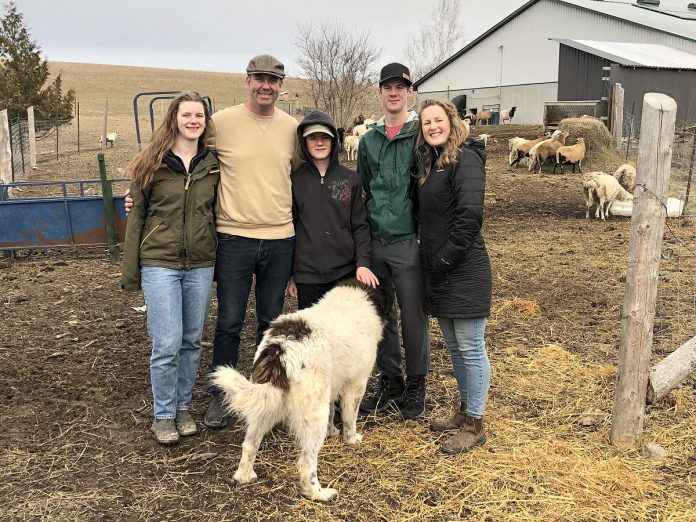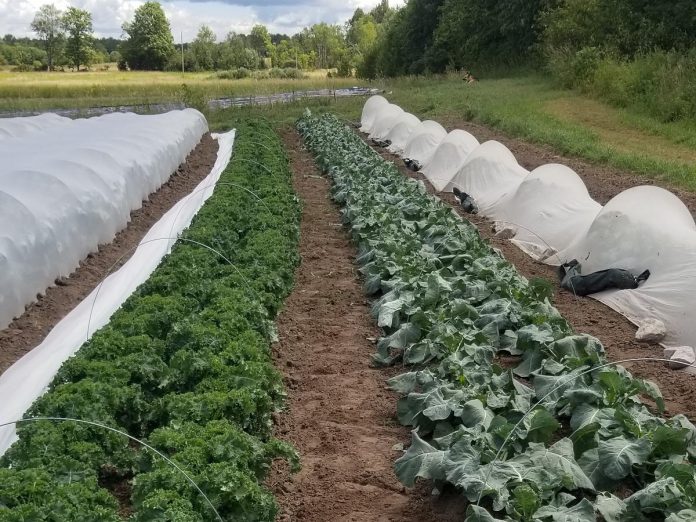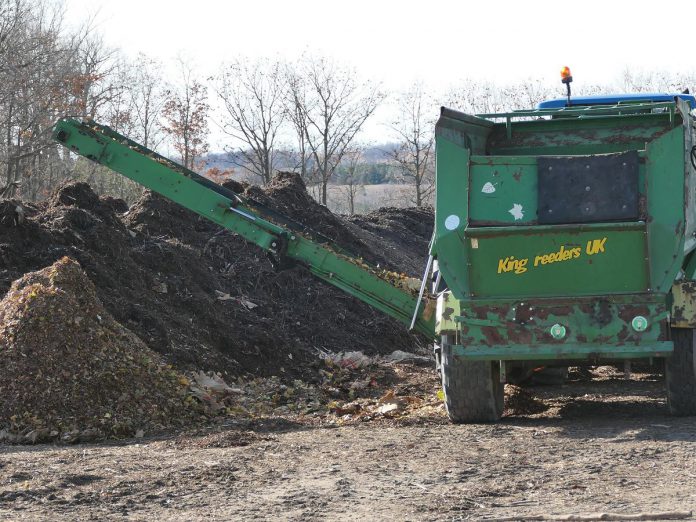
Environmental stewardship and financial sustainability are often framed as opposing goals. However, amidst the challenges of climate change and the need to feed a growing global population, creating a positive relationship between environmental and financial sustainability has never been more critical.
Farmers feel the push and pull of this delicate balance first hand as they strive to nurture their crops, care for livestock, and sustain their livelihood.
For Carrot Top Organics and Woodleigh Farms, both participants in Green Economy Peterborough’s Net Zero Farms pilot program, finding the links between financial and environmental sustainability have been instrumental to their success.
Joshua Blank, owner of Carrot Top Organics in Asphodel-Norwood Township, says a major win for him was finding the link between safeguarding soil health and reducing labour hours on weeding.
Carrot Top Organics is a small-scale organic vegetable farm that offers a four-season community supported agriculture (CSA) program. The farm has a booth at the Peterborough Regional Farmers’ Market.
Long before Carrot Top Organics was launched, Blank knew efficient weeding was going to be a major factor in profitability since labour hours add up quickly. This is a common struggle of market gardeners. Thus, with good planning and preparation including a rigorous weeding schedule, Carrot Top Organics came to life in 2020 and has been operating successfully since.

With nearly 20 years of organic farming experience, Blank understands the impacts of climate change and takes environmental stewardship seriously. At the start of his second season, he integrated a low-till approach to prioritize soil health.
“I used tarps, a broadfork, permanent beds, and a tilther,” Blank says.
Within weeks, he saw a reduction in labour hours.
“By disturbing less soil, I was inadvertently leaving long-forgotten weed seeds buried deep within the soil, and the tarps were forcing weed seeds (at the surface) to germinate and die since they couldn’t photosynthesize.”
With more time available and a lower weed density, his vegetable beds could be flipped into cover crops at the end of the season without tilling, reducing soil disturbance and the need for future weeding even further.
“I began to realize how connected my weeding and bed preparation strategies are, and more so how both are linked to plant and soil health,” Blank says.
By taking a sustainable approach, Blank has created a beneficial cycle that builds soil health and reduces labour in tandem, ultimately increasing the profitability and longevity of his farm business while protecting the soil for future generations.
Similar to Carrot Top Organics, Norm Lamothe of Woodleigh Farms in Cavan is all about improving and safeguarding the soil. After six generations of Woodleigh Farms working the land, Lamothe states he has a “lifelong interest in supporting soil health and biodiversity.”
Woodleigh Farms is home to a diverse 500-acre cash crop farm, alongside a 1,500-tap maple syrup operation, livestock for rotational grazing, and a year-round passive-solar greenhouse that supports a three-acre market garden.
Cash croppers can be criticized for using high levels of fertilizer or using practices that contribute to climate change like releasing methane gasses through animal farming. In light of this, Lamothe has made it his mission to demonstrate the economic benefits of taking an environmentally friendly approach to the modern cropping system.

Lamothe has already seen a measurable increase in soil organic matter. Lamothe uses soil amendments such as biosolids, green manures, and compost processed on-farm from municipal leaf and yard waste. Other practices include the introduction of livestock, cover crops, and low-till approaches. Higher soil organic matter leads to thriving crops and a happier, healthier, and more profitable farm.
Advanced technology also plays an important role at Woodleigh Farms. Soil sample data and drone imagery are used to inform decisions. Simultaneously, GPS guidance, variable rate applications of fertilizer, and solar harnessing approaches are reducing costs and greenhouse gas emissions.
Just like Carrot Top Organics, Woodleigh Farms is working to unlock integrated strategies that provide both the environmental stewardship and financial sustainability that are necessary for their future success.
In celebrating these triumphs, Green Economy Peterborough and Net Zero Farms recognize the journey towards sustainability is ongoing. The challenges posed by a changing climate and evolving markets demand continued innovation, resilience, and a commitment to practices that nurture both the land and financial stability.
On Thursday (February 8) from 12 to 1 p.m., Woodleigh Farms be providing input at “Solar for Small Business: Installation Options and Funding for SMEs & Farms,” a webinar in partnership between Green Economy Peterborough and Farms at Work. Interested individuals can register for this free event at eventbrite.ca/e/810756864607.
For more information about Green Economy Peterborough and the Net Zero Farms pilot program, visit greeneconomypeterborough.ca


























